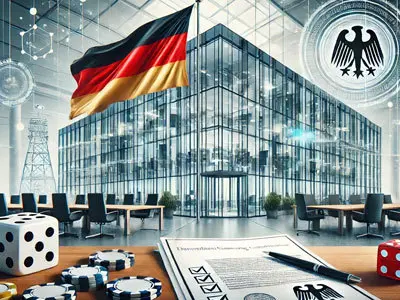
The whitelist also includes detailed information about each operator, such as licensing dates and the specific types of gambling authorized. This redesign aims to streamline the process of identifying legal operators and align with the 2021 Interstate Treaty on Gambling’s regulatory framework. The GGL emphasized that any operator not appearing on the list is considered illegal.
GGL CEO Ronald Benter highlighted the authority’s commitment to combating illegal gambling and protecting consumers: “With the redesign, GGL is pursuing its goal of channelling the online gambling market and preventing gambling and betting addiction.”
Google Policy Updates Target Illegal Gambling Ads
In a parallel effort, the GGL has collaborated with Google to restrict advertising opportunities for unlicensed gambling operators. As of September 25, 2024, Google’s updated policy allows only operators and affiliates licensed by the GGL to advertise on its platform. This change also excludes comparison websites that aggregate offers from multiple providers, effectively reducing exposure to unregulated operators.
The impact of this policy shift is already evident, with the GGL confirming that no paid ads for illegal operators now appear on Google search result pages in Germany. Benter described the measure as a success: “In our view, the amended advertising guideline is currently having a clear effect.”
Despite these advances, challenges remain in curbing illegal gambling providers’ visibility through organic search engine optimization (SEO). Many unlicensed operators exploit link marketing and ranking manipulation strategies to maintain visibility. The GGL plans to intensify its efforts in collaboration with Google to address these issues further.
Broader Implications for Germany’s Gambling Market
The updated whitelist and stricter ad policies are key steps in the GGL’s broader mission to regulate Germany’s gambling market effectively. While the regulator estimates that illegal gambling accounted for just 4% of the market in 2023, independent studies have suggested significantly higher figures, such as the University of Leipzig’s report indicating 48.8%.
By combining enhanced transparency tools like the interactive whitelist with stronger enforcement measures, the GGL aims to provide consumers with a safer gambling environment while reducing illegal operators’ influence. Future efforts will likely involve further cooperation with tech giants like Google to limit unregulated activities in the digital space.
Sources:
“GGL Publishes Whitelist in New Design,” Glücksspielbehörde, November 14, 2024.
“GGL States: Updated Google Advertising Policy Is Having an Impact,” Glücksspielbehörde, November 18, 2024.




